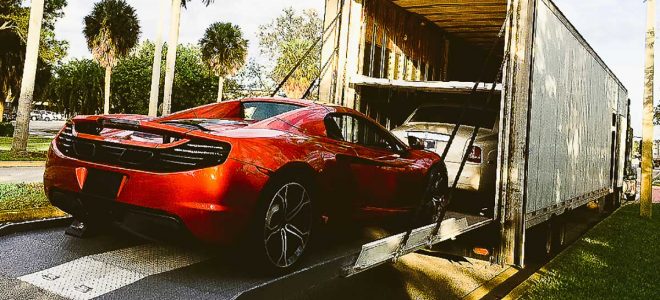Do you own a classic or an exotic car? Are you relocating or planning for a vacation at a distant, overseas location? You may be racking your brain for possible shipping methods that fall within the parameters of your budget. While seemingly cost-efficient on paper, opting for self-transport can be risky, time-consuming, and increases wear-and-tear on your vehicle. While initially harmless, these minor bumps and bruises can lead to incurred expenses down the road, such as the cost of tire replacements, oil changes, dent repairs, repainting, etc.
If you own a luxury or vintage vehicle, don’t cut corners in the interest of savings. You may be curious why experts recommend this shipping method over open-carrier transportation when there are plenty of other affordable options available on the market. In short, choosing enclosed-carrier shipping protects your vehicle from damage that could depreciate the car’s value. With that added protection, you can boost your car’s resale value, ensuring you rake in a sizable profit. Enclosed auto transport’s unique benefits guarantee your vehicle reaches its destination scratch and scuff-free.
If you’re looking for enclosed auto transport services, you could partner with a shipping company like Guardian Auto Transport (www.guardianautotransport.com). These shipping professionals will ensure that your car arrives at the new destination in tip-top condition. Hiring these auto-shipping professionals grants your family the peace of mind it desperately needs when confronted with the rapid-fire of move-related to-do list items.
During the shipment of your vehicle, you’ll remain at ease, knowing that trained shipping experts will handle your prized possession with the utmost professionalism, provide an added layer of protection against the elements, and offer adequate insurance coverage.
How much will it cost me?

Source: shipeetransport.com
Companies calculate enclosed auto transport costs using the same formula as open transport shipping. Factors considered are the distance to be covered, car value, car size, and your car’s weight.
However, the average cost of enclosed auto transport typically exceeds open transport costs by $500-$2,000 per trip. It will cost you anywhere 40-60% more than that of standard, open-air shipping due to the added element of extra protection an enclosed trailer offers. However, the distance of the trip is the prime determinant of the shipping cost.
For those unfamiliar with the auto shipping process, you may be wondering why the cost of open-carrier shipping pales in comparison to enclosed-carrier shipping. Unfortunately, there’s a shortage in the current supply of enclosed trailers. As a result of this shortage, many auto transport companies don’t provide closed-carrier transport services altogether. With limited supply and increased demand, scheduling becomes tricky, forcing these auto transport companies to hike up their prices to scale down the interested clientele. In conjunction with a limited supply of enclosed trailers, the following factors contribute to elevated costs:
- High insurance coverage costs designed to protect luxury or rare vehicles
- Limited space in the trailer, reducing the number of opportunities to make a profit
- Experienced drivers required to operate an enclosed trailer
- Specialized equipment necessary to keep the transport vehicle running
If you consider your car an investment of a lifetime, opt for enclosed auto transport. Even though it’s a bit more expensive, it will be worth the price when your vehicle reaches the destination in the same condition it left.
Risks of open-carrier transport
For those vehicle owners unwilling to fork over the additional $500-$2,000 for enclosed shipping options, you’ll need to address your vehicle’s susceptibility to on-the-road hazards. Besides the added coat of dirt and debris that a simple car wash can remedy, you may inadvertently expose your vehicle to costly scratches and dings you can’t afford to repair.
Whether sizable hailstones, airborne rocks, or unexpected storms put your vehicle in harm’s way, you’ll want to verify that your car is protected under the provisions of your shipping provider’s insurance policy. Unfortunately, auto transport insurance policies are often limited in scope or virtually useless to the vehicle owner. In some cases, a shipping provider may slip a waiver into a contract for exemption purposes, absolving them of liability if your vehicle sustains damage.
If the driver is involved in a car collision during transport, the chances of an insurance company declaring your vehicle a total loss notably increase with open-carrier options. While you may initially save around $1,000 by opting for open-carrier shipping methods, if the company’s insurance policy doesn’t adequately protect your vehicle, you may be forced to assume responsibility for the exterior/interior damage—leaving you to pay these expenses out-of-pocket.
Not surprisingly, these repair costs will far exceed the $1,000-$2,000 you saved with this shipping alternative. When it comes to your $40,000 investment, there’s no room for rookie mistakes.
Why is enclosed auto transport the preferred shipping method?
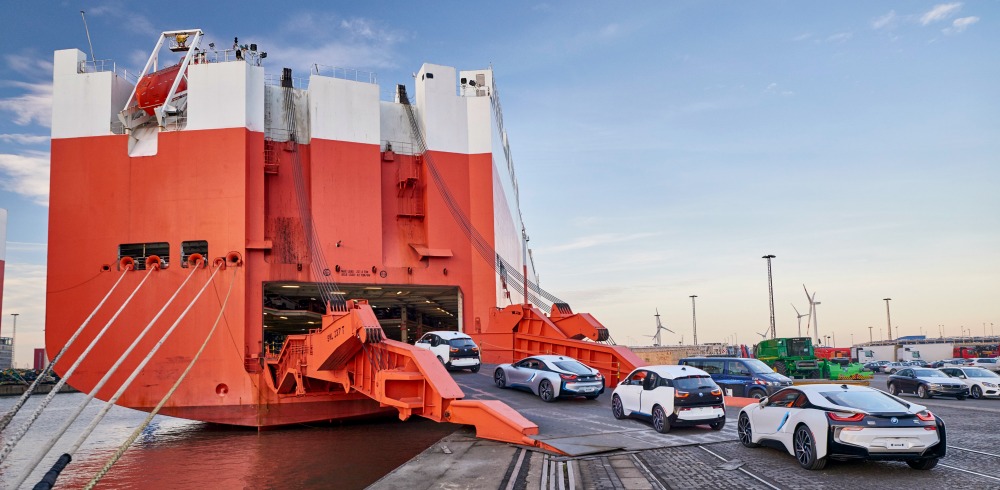
Source: themanufacturer.com
Enclosed auto shipping offers superior protection and safeguards your vehicle against extreme weather conditions, such as snow and hail storms. Your car will reach the destination free of debris, dust, grime, rain, and other roadside hazards.
How do enclosed carriers offer extra protection? Typically, enclosed auto transport has the following features to safeguard your vehicle.
- Hard or soft sidewalls for extra safety and protection
- A lift for cars with low ground clearance
- Soft strap tie-downs to protect the vehicle’s suspension
- High insurance coverage in case of mishaps
- Climate-control features
An explanation for the additional cost
As mentioned previously, choosing enclosed shipping options will cost a vehicle owner anywhere from $500 to $2,000 more. These additional costs vary depending on your vehicle model and the provider itself.
Aside from the added layer protection against road debris and harsh weather conditions, potential customers may struggle to rationalize additional costs. Note that an enclosed carrier fits far fewer vehicles than its open-carrier counterpart, limiting profitability. Unlike open-carrier shipping methods, a provider can’t pack eight to ten cars into an enclosed trailer. Usually, an enclosed trailer can safely hold an average of three vehicles. To maximize profits, a shipping provider must, then, charge his or her customers extra to compensate.
Additionally, enclosed carriers aren’t nearly as fuel-efficient as open-carrier shipping methods. In response, auto-shipping providers are obligated to bump up their prices to cover additional refuel costs, justifying the anticipated $500-$2,000 increase.
Pros outweigh the cons
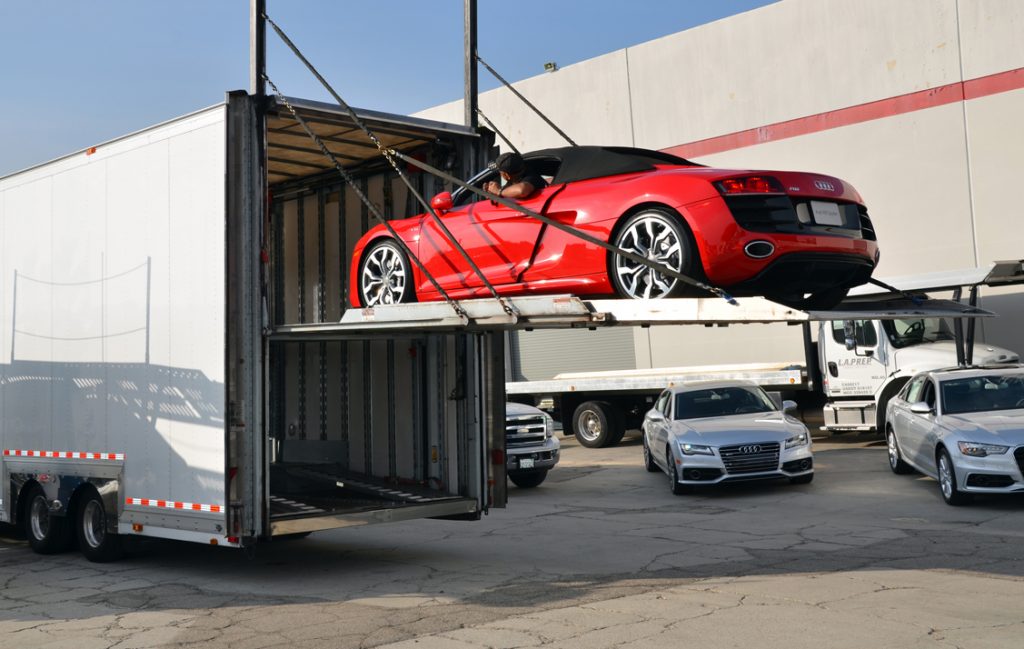
Source: tiger-super-cat.co.uk
While no shipping option is faultless, enclosed shipping options’ pros far outweigh the cons. Enclosed-carrier shipping methods promote vehicle safety and prevent cost-incurring exterior and interior damages that can negatively impact your investment.
However, with enclosed car shipping, a driver is limited in terms of available inspection opportunities. While a driver can usually perform routine check-ins during transit with an open trailer, the inspection process with closed-carrier shipping is much more tedious. Fewer inspections typically translate to more infrequent updates, which can worry the anxious vehicle owner. If you prefer around-the-clock updates, open-carrier shipping may work in your favor.
Cheaper isn’t always better
When narrowing down your shipping provider options, don’t misconstrue lower rates as a tell-tale sign that your auto transport company of-choice is more trustworthy. Those shipping providers that lean to the more expensive side of the price spectrum aren’t always trying to deceive or overcharge their customers. In fact, shockingly lower rates could indicate a questionable auto transport company that isn’t committed to quality customer service and the protection of transported vehicles.
If you aren’t sure how to distinguish between a good deal and a potential scam, take mental note of their response rate. Does this provider answer and return phone calls promptly? Or do you have to follow-up multiple times to ensure you receive answers to your questions?
Similarly, you’ll want to compare the insurance coverage offered by moderately-priced shipping providers and that of low-end shipping providers. Nine times out of ten, you’ll realize the insurance plans of those providers with higher rates are more comprehensive, protecting you from financially devastating out-of-pocket costs.
While you may be able to skate by with cheaper shipping options for a birthday gift or online order, don’t apply the same logic to the vehicle that transports you from point A to point B every single day. Otherwise, you may find yourself relying on a bus pass to travel to and from school, your place of employment, weekly errands, etc.
Which vehicle owners should invest in enclosed auto transport?
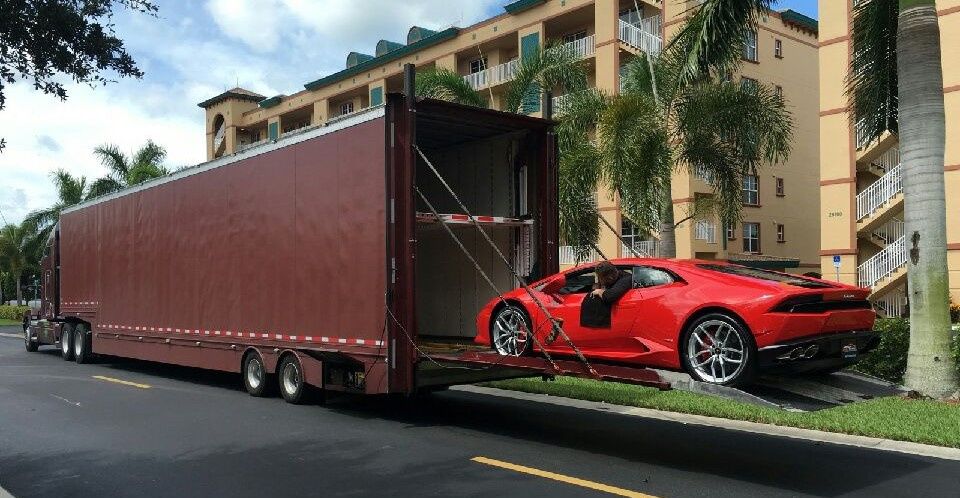
Source: servicewire.org
Unfortunately, auto transport companies hesitate to transport luxury vehicles priced at over $75,000 due to potential liability. Persuading your shipping provider of choice to transport your vehicle cross-country poses less of a challenge when you opt for enclosed auto transport.
Because mechanical engineers and automotive designers craft a luxury vehicle with higher-quality parts and high-end features, in the event of an accident, repairs on a luxury vehicle will exceed those of an older, less expensive model by a landslide. Even the smallest ding could lead to pricey auto body repair if the luxury car currently sports a custom paint job, custom doors, or other custom features with the potential to rake in expenses for the liable auto transportation company.
If you identify as a luxury vehicle owner, don’t gamble with open-carrier shipping options. Avoiding water damage, deeply-embedded car scratches, paint chips, and fire-related damage is as simple as booking a reputable shipping provider with an ample supply of enclosed trailer cars available.
Who can I trust with my car?
If you’re an owner of a classic, a vintage, or a rare car and are searching for enclosed auto shipping services, research is critical when selecting an auto transport company. Be sure to verify the company’s experience and licensing. As an additional precaution, carve out time in your schedule to sift through the company’s online reviews. In your search, avoid companies that charge any cancellation fees even when you haven’t confirmed a driver.
Other signs of a reliable shipping provider include the following:
- An easy-to-navigate and frequently-updated website
- Free, no-strings-attached quotes
- Lighting-fast response times to emails and phone calls
- Proven to prioritize satisfactory customer service experiences
- Representatives that offer a variety of options to customers with varying budget restrictions
How to find an enclosed auto transport provider
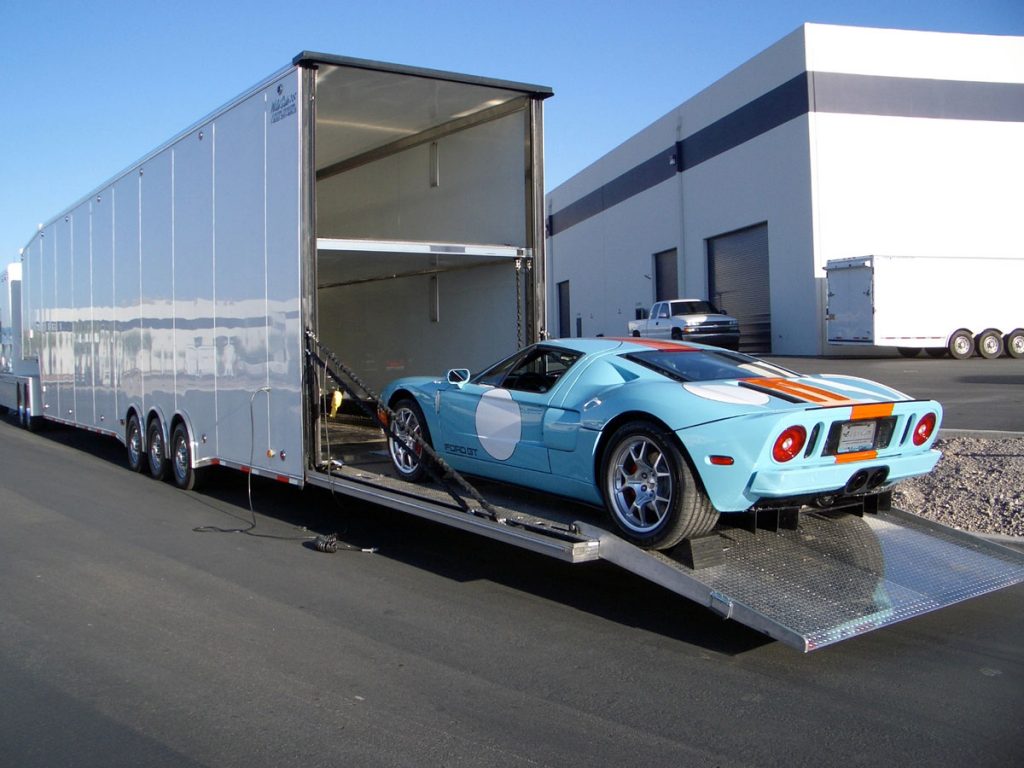
Source: fortecholimited.com
Moving costs can be astronomical, meaning that households from all walks of life will try to trim their moving-related expenses whenever possible. With the average interstate household move amounting to upwards of $4,000, according to The American Moving and Storage Association, cutting corners can be tempting. Skimp on the packing tape, the bubble wrap, even the road trip snacks, but don’t settle for a less-than-reputable auto transport company.
Are you wondering how to find a reliable vehicle shipping provider in your area? As a first option, you can harness the power of social media and post feelers online for auto transport companies your followers would recommend. During your search, consider reaching out to loved ones who can put you in contact with auto transport companies they’ve partnered with in the past. After all, the power of word-of-mouth is undeniable.
If those in your immediate social network don’t have experience working with a vehicle shipping company, contact your moving company for recommendations. In some instances, car shipping providers form partnerships with moving companies, which can help you score referral discounts if you confer with your movers before testing your luck of the draw.
Note that some moving companies offer auto shipping services, killing two birds with one stone. However, expect the moving company’s quote to be higher than its competitors’ due to the convenience factor.
As a last resort, scroll through the first-page results to find a reliable auto transport company. Generally speaking, companies that achieve first-page Google rankings invest a generous amount of time and energy into their SEO strategy, meaning they enjoy high-profit margins that allow for a more sizable marketing budget. Similarly, higher profit margins usually imply a steady stream of customers satisfied with the quality of services.
With this logic in mind, don’t trust shipping providers with slow-loading websites, outdated websites. Has the company neglected to update its website in several months to several years? Does the most recent blog post date back to last year? Does the site include incorrect information, such as inaccurate hours of operation, the wrong address, etc.? If so, consider these waving red flags that should, ultimately, deter you as the customer. If a shipping provider overlooks
Final thoughts
While the costs printed on a shipping provider’s contract can be intimidating to the frugal vehicle owner, remember that enclosed auto transport shipping is a worthwhile investment. Should you find yourself stuck in the rut of shipping-provider research, refer to well-reviewed auto transport companies. These shipping experts pride themselves on their reliable services and their commitment to top-quality customer service.
Regardless of your shipping provider of choice, remember that an instant quote is just a few clicks away. Take the mystery out of the shipping process and utilize an online car shipping calculator so that you can budget accordingly.

